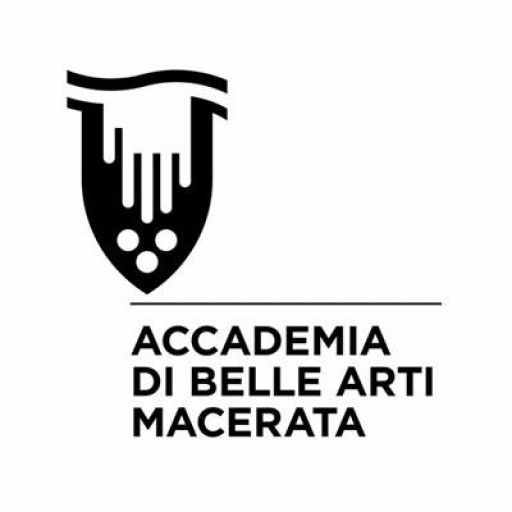Photos of university / #oxford_uni
Programme description:
The Modern Languages Faculty at the University of Oxford offers a comprehensive undergraduate degree in Greek and Latin Languages and Literature. This programme provides students with a deep understanding of the classical languages, their literature, and their cultural contexts, equipping them with advanced linguistic skills and critical thinking abilities. Throughout the course, students will engage with ancient texts in the original languages, exploring a wide range of genres including poetry, prose, and drama, while also examining archaeological and historical sources to enrich their understanding of the classical world.
The programme combines rigorous language training with detailed literary analysis, fostering a mastery of Greek and Latin that enables students to read and interpret ancient texts with confidence. Emphasis is placed on developing analytical skills, contextual comprehension, and appreciation of the historical significance of classical literature. Students will also study the history, philosophy, and culture of ancient Greece and Rome, providing a well-rounded understanding of their enduring influence on modern civilization.
Students have the opportunity to participate in tutorials, where they receive personalized feedback and guidance from expert scholars. They can also benefit from access to remarkable collections of classical manuscripts, archaeological sites, and cultural resources. The programme prepares graduates for careers in academia, teaching, archaeology, museum curation, publishing, and other fields that value linguistic proficiency and classical knowledge.
This programme is suitable for students passionate about ancient civilizations, languages, and literary studies, and who wish to develop both their linguistic skills and their appreciation for classical culture. With its combination of language mastery, literary analysis, and historical context, the Greek and Latin Languages and Literature programme at Oxford aims to produce well-rounded, critically engaged scholars ready to contribute to a wide range of intellectual and professional pursuits.
The majority of students take the shorter MSt, which the faculty recommends as the default master's choice in Greek and/or Latin languages and literature. However, the MPhil is often taken by two groups of students and designed with them in mind: those who feel that they would benefit from two more years of taught education in Classics before embarking on a doctorate; and those who have a clear idea of the topic that they hope to research eventually for their doctorate, and who wish to start extensive work on this topic already in their master's dissertation.
Nearly all students take the course as preparation for a research degree, and for such students it might offer, for instance, linguistic training; the opportunity to become acquainted with an ancillary discipline such as papyrology; engagement with a particular author's texts at a deeper level; and/or textual criticism of Greek and/or Latin; or, reception studies. The MPhil also offers, through an obligatory dissertation, the first steps in actual research and the extended presentation of a scholarly argument.
You will study three options: a thesis and any two options from lists A and B. You will study one option in your first year and the other in your second year, and will work on your thesis across both years.
List A comprises major literary texts and genres - for example, historiography, lyric poetry, Cicero, Ovid. You may also propose your own text or genre option, for approval by the Graduate Studies Committee. The core of the teaching for these options is a series of, typically fortnightly, one-on-one sessions with a tutor. Examination is by means of three submitted essays of up to 7,500 words and a paper of translation and comment.
List B comprises more technical subjects such as the textual criticism of Greek or Latin texts, papyrology, comparative philology and reception. These options are delivered in a variety of ways, often by (typically weekly) classes. Assessment is by exam or pre-submitted work or a combination of the two. Intermediate Ancient Greek or Latin may be taken if you have not studied both languages to a high level in the course of your first degree.
Your thesis can be up to a maximum of 25,000 words. The subject has to be devised in consultation with your supervisor and approved by the Graduate Studies Committee, and must be submitted by the sixth week of the Trinity term of your second year.
There is the possibility to specialise in reception across the course by choosing the Reception module option and working on reception topics in a text/genre option, though you will still sit a translation exam as detailed below.
As an MPhil student you are assigned a supervisor, who provides overall direction for your course, and with whom you have regular meetings. Your supervisor will arrange tutors for you for each option. You will have considerable input yourself in shaping and driving your studies.
All MPhil students have the opportunity to attend a wide range of lectures, seminars and talks by visiting speakers. In their first year, they also attend a class on research techniques in Classical literature, extending over two terms: this includes in the first term units on topics such as the history of classical scholarship and on research resources, as well as on various aspects of literary theory. In the second term considerable attention is paid to presentational skills, as students deliver papers of their own to the group.
Applicants are normally expected to be predicted or have achieved a first-class or strong upper second-class undergraduate degree with honours (or equivalent international qualifications), as a minimum, in Classics or a similar course of academic study with substantial course components in the area of Classics.
For applicants with a degree from the USA, the minimum GPA sought is 3.7 out of 4.0.
If you hold non-UK qualifications and wish to check how your qualifications match these requirements, you can contact the National Recognition Information Centre for the United Kingdom (UK NARIC).
Degree-level competence in at least one ancient language is a requirement for admission.
No Graduate Record Examination (GRE) or GMAT scores are sought.
- Official transcript(s)
- CV/résumé
- Statement of purpose/personal statement:Up to 700 words
- Written work:Two essays of 2,000 words each
- References/letters of recommendation:Three overall, generally academic
ENGLISH LANGUAGE REQUIREMENTS
Higher level
|
Test |
Standard level scores |
Higher level scores |
||
|
IELTS Academic |
7.0 | Minimum 6.5 per component | 7.5 | Minimum 7.0 per component |
|
TOEFL iBT |
100 |
Minimum component scores:
|
110 |
Minimum component scores:
|
| Cambridge Certificate of Proficiency in English (CPE) | 185 |
Minimum 176 per component |
191 |
Minimum 185 per component |
| Cambridge Certificate of Advanced English (CAE) | 185 |
Minimum 176 per component |
191 |
Minimum 185 per component |
- Global Education
- Hill Foundation Scholarships
- Ertegun Scholarship Programme
The undergraduate program in Greek and Latin Languages and Literature at the University of Oxford offers students a comprehensive and rigorous education in the classical languages, their literature, history, and cultural contexts. The program provides an in-depth study of ancient Greek and Latin, aiming to develop proficiency in reading and translating classical texts accurately and fluently. Students are introduced to the history, philosophy, poetry, and prose of ancient Greece and Rome, engaging with original texts as well as modern scholarly interpretations.
Throughout the course, students explore the development of Greek and Latin language and literature from their earliest origins to their enduring influence in the modern world. The program emphasizes the critical analysis of texts, linguistic skills, and the ability to contextualize literatures within their historical and cultural frameworks. In addition to language mastery, students engage in topics such as classical mythology, philosophy, politics, and the arts, obtaining a well-rounded understanding of the classical civilizations.
The curriculum is designed to be flexible, allowing students to tailor their studies to their interests within classical languages and literature. The program combines language instruction, literary analysis, and interdisciplinary approaches, often incorporating archaeology, history, and philosophy. Students also develop research skills and scholarly writing through various projects and assessments.
Teaching methods typically include lectures, seminars, practical language classes, and individual tutorials, fostering an interactive learning environment. The program encourages intellectual independence and original thinking, preparing graduates for careers in academia, education, publishing, archaeology, or various roles where skills in critical analysis and cultural understanding are valued.
Graduates of the course benefit from the University of Oxford’s world-renowned resources, including access to extensive libraries and archives specializing in classical studies. The program also supports participation in conferences and research projects, enabling students to engage actively with the scholarly community.
Overall, the undergraduate degree in Greek and Latin Languages and Literature at Oxford provides students with a deep appreciation of the classical world, linguistic competence, and analytical skills that are applicable in numerous professional contexts. It aims to cultivate a lifelong interest in ancient civilizations and equip students with the expertise required for advanced studies or careers requiring high-level critical thinking, cultural literacy, and language proficiency.









